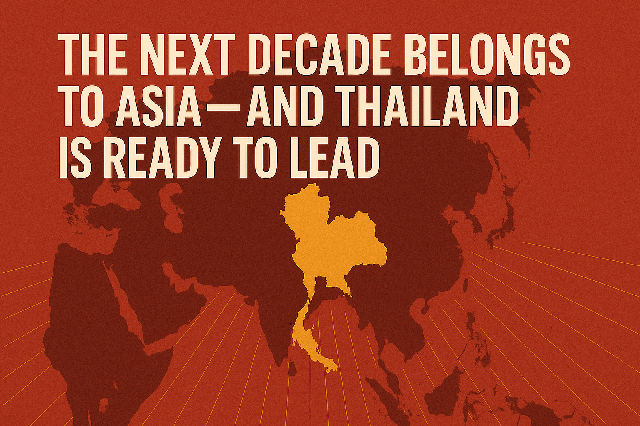Technology transfer plays a pivotal role in fostering economic development, innovation, and industrial growth. In Thailand, a country with a burgeoning economy and a strong focus on technological advancement, creating an effective technology transfer plan is essential for businesses aiming to capitalize on the local market. This article explores the strategies, opportunities, and regulatory considerations associated with technology transfer plans in Thailand.
Understanding the Thai Technological Landscape
Innovation Ecosystem
Thailand boasts a vibrant innovation ecosystem, with government initiatives, research institutions, and a growing number of startups contributing to technological advancements. Understanding the key players and their roles is crucial for businesses looking to transfer technology successfully.Industry Focus
Identifying industries with a high demand for technology can guide businesses in choosing the right sectors for technology transfer. Industries such as manufacturing, healthcare, agriculture, and renewable energy are witnessing increased demand for advanced technologies.
Strategies for Successful Technology Transfer Collaborative Partnerships
Engaging in collaborative partnerships with local research institutions, universities, and established businesses can facilitate smoother technology transfer. These partnerships provide access to local expertise, resources, and networks, enhancing the chances of successful implementation.Tailored Training Programs
Customized training programs are instrumental in transferring not just technology but also the knowledge required for its effective utilization. Offering training to local teams ensures a seamless integration of the transferred technology into existing processes.Intellectual Property Protection
Ensuring the protection of intellectual property (IP) is paramount during technology transfer. Clear contractual agreements, non-disclosure agreements (NDAs), and thorough due diligence are essential to safeguard the innovator’s rights and foster a conducive environment for technology transfer.
Regulatory Considerations
Compliance with the Foreign Business Act (FBA)
The Foreign Business Act regulates the engagement of foreign entities in certain business activities. Businesses involved in technology transfer must navigate FBA restrictions, ensuring compliance through appropriate legal structures and permissions.
Patent and Trademark Registration
Securing patents and trademarks is crucial for protecting transferred technologies. Understanding the Thai patenting and trademark registration processes is essential to safeguard innovations and maintain a competitive edge.
Technology Approval by Regulatory Authorities
Certain technologies may require approval from regulatory authorities before implementation. Businesses should conduct thorough assessments to determine whether their technology falls under regulated categories and seek the necessary approvals.
Opportunities for Technology Transfer in Thailand
Government Support and Incentives
The Thai government actively promotes technology transfer through various incentives and support programs. Businesses should explore incentives offered by agencies like the Board of Investment (BOI), which provides tax breaks and other benefits to encourage technology-intensive industries.
Emerging Markets
Thailand’s emerging markets present lucrative opportunities for technology transfer. Sectors such as smart agriculture, healthcare technology, and renewable energy offer potential growth avenues for businesses aiming to introduce innovative solutions.
Cross-Border Collaboration
Collaborating with international and local partners can open doors to broader markets. Thailand’s strategic location in Southeast Asia makes it an ideal hub for businesses looking to expand their technological footprint across the region.
Challenges and Mitigation Strategies
Cultural and Language Barriers
Navigating cultural and language differences is a common challenge in technology transfer. Establishing clear communication channels, providing cross-cultural training, and fostering an inclusive work environment can mitigate these challenges.
Regulatory Complexity
The intricacies of Thai regulations, especially in the context of technology transfer, can be challenging. Engaging legal experts familiar with local laws and regulations is crucial for ensuring compliance and minimizing legal risks.
Technological Infrastructure
In certain regions, the existing technological infrastructure may pose challenges to the seamless implementation of advanced technologies. Collaborating with local authorities and investing in infrastructure development can address these challenges.
Case Studies: Successful Technology Transfer Initiatives in Thailand
Highlighting real-world examples of successful technology transfer initiatives can provide insights into effective strategies, challenges faced, and lessons learned. Case studies offer valuable benchmarks for businesses planning similar ventures in Thailand.
- [Case Study 1: International Tech Company Collaborates with Thai University for Agricultural Innovation]
- [Case Study 2: Renewable Energy Solutions Transfer Leads to Sustainable Development]
VII. Future Trends and Innovations in Technology Transfer
- Digital Transformation Initiatives
Thailand is actively embracing digital transformation across industries. Businesses involved in technology transfer should explore opportunities in helping local counterparts transition into the digital era, offering solutions for enhanced efficiency and competitiveness.
- Industry 4.0 Integration
The Thai government’s push towards Industry 4.0 presents avenues for technology transfer in automation, smart manufacturing, and the Internet of Things (IoT). Businesses specializing in these domains can find substantial opportunities for collaboration.
Sustainability and Green Technologies
Sustainable Practices
As Thailand intensifies its focus on sustainability, businesses transferring environmentally friendly technologies can align with the country’s goals. Technologies promoting energy efficiency, waste reduction, and eco-friendly practices are likely to find a receptive market.
Circular Economy Solutions
Incorporating circular economy principles can be a key focus for technology transfer initiatives. Businesses can explore collaborations that promote recycling, reusing materials, and minimizing environmental impact.
Community Engagement and Corporate Social Responsibility (CSR)
Inclusive Technology Transfer
Incorporating CSR initiatives into technology transfer plans can enhance community engagement. Initiatives that empower local communities, provide skill development, and promote inclusivity contribute to a positive social impact.
- Partnerships with Non-Governmental Organizations (NGOs)
Collaborating with NGOs can add a philanthropic dimension to technology transfer. Businesses can leverage NGO partnerships to address social challenges and contribute to sustainable development goals.
- Post-Transfer Support and Continuous Improvement
- Maintenance and Upgrade
Providing ongoing support for the adopted technologies is essential. Establishing mechanisms for maintenance, updates, and troubleshooting ensures the longevity and effectiveness of the transferred solutions.
- Continuous Training and Knowledge Transfer
Facilitating continuous learning and knowledge transfer is critical for the sustained success of technology transfer initiatives. Implementing programs for skill enhancement and staying abreast of technological advancements fosters a culture of innovation.
- International Collaboration Beyond Technology Transfer
- Research and Development Collaborations
Moving beyond technology transfer, businesses can explore collaborations in research and development (R&D). Joint R&D initiatives can lead to the creation of cutting-edge technologies with global applications.
- Global Value Chains
Integrating into global value chains enhances the scalability and impact of technology transfer initiatives. Businesses can position themselves strategically by becoming key players in international collaborations.
Conclusion
The landscape of technology transfer in Thailand is dynamic and evolving. By embracing emerging trends, focusing on sustainability, and fostering collaborations that extend beyond technology transfer, businesses can not only thrive in the local market but also contribute to Thailand’s positioning as a regional and global technological leader. Navigating the challenges and opportunities in this ever-changing landscape requires agility, a commitment to innovation, and a deep understanding of both the local and global contexts. As Thailand continues its journey towards becoming a technological hub, technology transfer will play an integral role in shaping the nation’s future.








